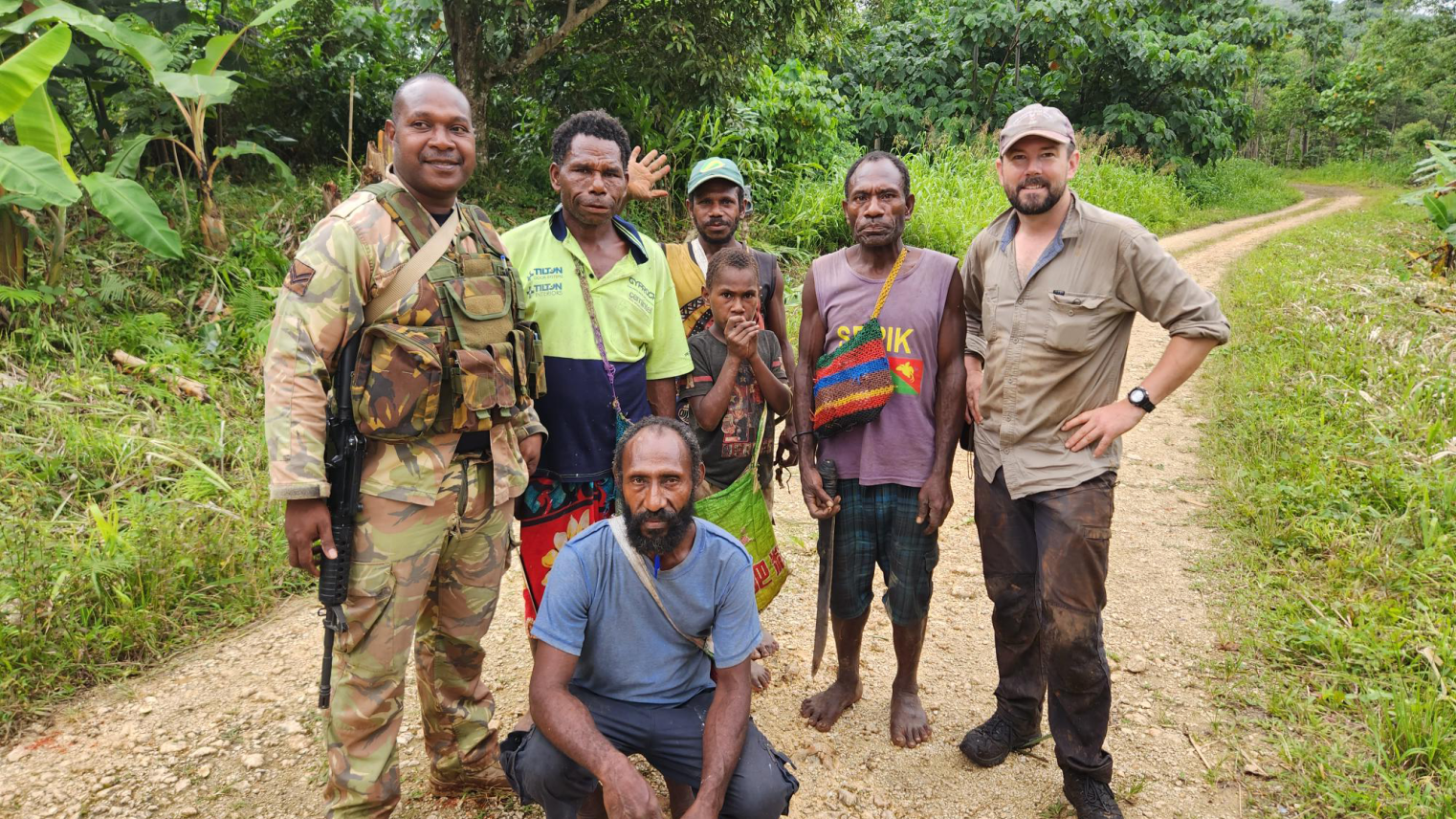From Wreckage to Reconnection: ANU Signs Groundbreaking Memorandum of Understanding with US Department of Defense

When Dr Ben Shaw from the ANU School of Culture, History & Language (at the ANU College of Asia and the Pacific) received an email from the Defense POW/MIA Accounting Agency (DPAA) (within the US Department of Defense) in 2023, little did he know it would set him on a course that would redefine both his fieldwork and the future of student training in Papua New Guinea.
The email outlined an initiative to recover the remains of American soldiers who were lost in World War II battles across the Pacific. It was an extraordinary opportunity—one that offered historical justice, cross-cultural collaboration, and invaluable real-world experience for the next generation of archaeologists.
The timing was uncanny. That year’s PNG Field School had been cancelled due to a kidnapping incident in the region, leaving a rare window of availability. Ben and colleague Dr Simon Coxe jumped in, undertaking training and traveling to PNG to explore the project's feasibility. “It was a different world,” Ben recalls of working with the agency, “but a great experience.” Their early findings, including the remains of long-lost planes, were promising—and deeply moving. “Some of the discoveries are so personal. Connecting to a lived experience makes everything more real, more tangible. It’s not just academic research anymore.”
But running two major field operations in PNG each year was unsustainable. So, Ben and DPAA came up with an elegant solution: merge the recovery work into the PNG Field School itself. That idea has now taken off, thanks to the newly signed Memorandum of Understanding (MOU) between ANU and the U.S. Department of Defense. The MOU, which spans five years, sets out a shared mission to locate and recover aircraft wreckage in New Britain and beyond. Once specific sites are identified and initial groundwork completed, ANU students will be involved in archaeological, linguistic, and diplomatic efforts on the ground—helping recover lost history while navigating sensitive cross-cultural contexts.
The collaboration also offers a rare form of experiential learning. Students will not only participate in excavations and community dialogue but also engage directly with embassies and policymakers—gaining insight into the mechanics of diplomacy and international cooperation. “It’s policy in action,” Ben says. “It connects all the threads we already do and brings them together under one meaningful mission.”
With the MoU providing a robust framework for collaboration, the project stands as a model for ethical, engaged research. “We do have to be careful,” Ben acknowledges. “There are strict rules about how DPAA operates which connects well with my own ethical approach as we won’t do anything that would jeopardise my reputation or the trust we’ve built with PNG communities.” But the rewards are immense—bringing closure to families, engaging PNG communities in meaningful heritage work, and offering students a transformative training ground.
And if you’re wondering what finally convinced Ben to sign on? “Honestly,” he laughs, “it was the onboarding videos, which featured none other than Kevin Costner!” “If Kevin is on board, so I am”.